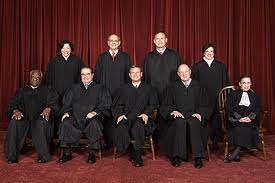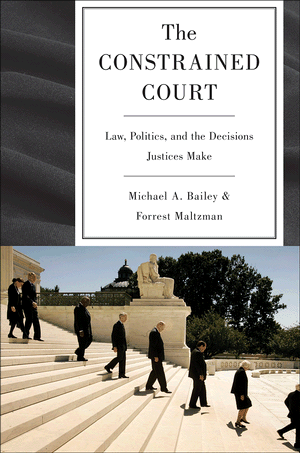
Only 22% of Americans think they are in the 47%
When Mitt Romney’s 47% comments came to light, many were surprised that Romney’s claim that 47% of households do not pay income taxes is, in fact, true.
To many people, this is outrageous. Why should they be paying the federal taxes they do while so many fellow citizens get a free ride?

Obama Healthcare: Court vs. Congress
We will be talking about the Supreme Court’s decision to uphold the mandate as a tax for a long time. I’ve posted my initial two cents on The Monkey Cage, a US political science blog. But let me summarise a bit here. One of the many interesting sub-plots is what the Court’s actions this week imply for the role the Court plays relative to Congress. Roberts clearly voted against his conservative co-ideologues on the mandate. On the Medicaid expansion, we also see justices voting against their presumed co-ideologues in Congress. Breyer, Kagan would be considered pretty reliable liberal votes on policy question of expanding Medicaid. And yet they voted to limit congressional power to encourage/coerce states to implement this expansion. Another …

Oyez! Oyez! Oyez! Obama’s Heath Care Plan Hits the Supreme Court
The web is rightly abuzz with analysis of the Supreme Court’s impending consideration of the US Affordable Care Act, usually known as Obama’s health care bill. Today is the second day of oral arguments. Of the many interesting aspects of the case, the role of precedent stands out. Implicit in much of the discussion on which precedents the Court will follow is that precedent actually matters. I think it does; others think not. We shall see. The broader discussion is over whether the Court will be willing to strike such a major law on a weak legal case. The legal issue is whether the Commerce Clause of the U.S. Constitution — 16 words that grant Congress the authority to regulate ‘commerce …

The U.S. Supreme Court and health care
Obama’s landmark health care reform legislation was perhaps the most consequential social policy change in the U.S. in several decades. And we now know that whether it will fully go into effect will depend on the views of the nine unelected, life-tenured justices of the Supreme Court. After Bush v. Gore and Citizens United many Court observers have become jaded, viewing the Court’s actions simply as extensions of politics. This view has a strong pedigree in political science and, if it is correct, it’s pretty easy to predict what will happen to the health care law: down it goes. Four justices are solidly conservative and there is little doubt about their policy preferences. A fifth, Justice Kennedy, is a …










